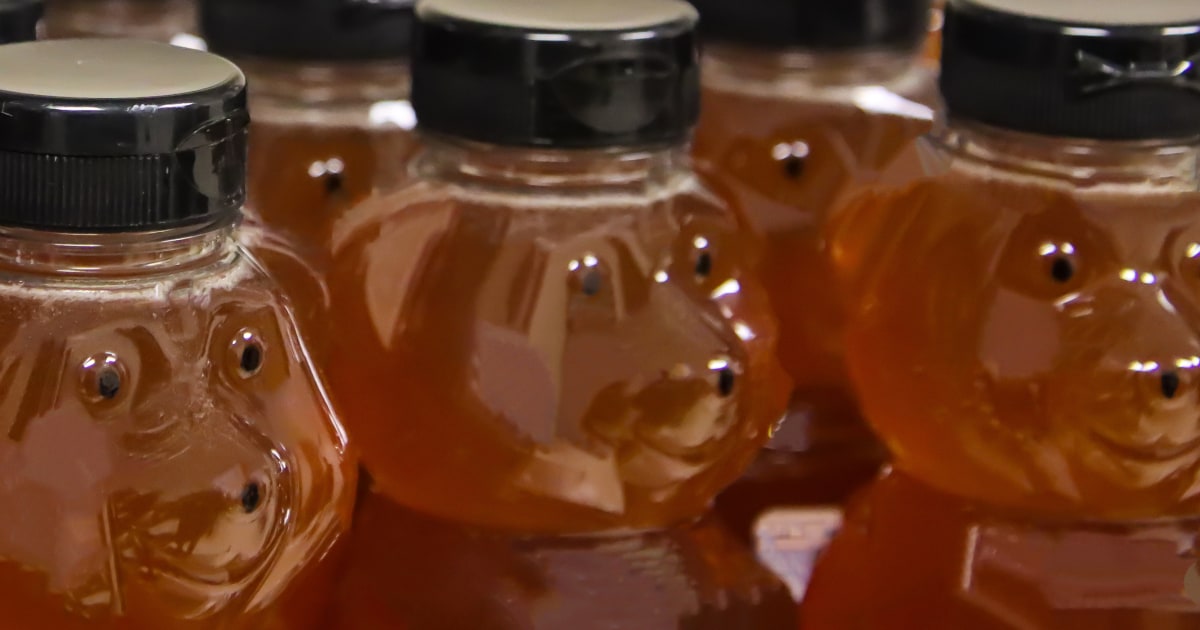
Beekeepers across the country are sounding the alarm as honey bee populations are dwindling at an unprecedented rate, a trend that could affect Americans' wallets at the grocery store. Honey bees are the backbone of the food ecosystem, pollinating 75% of the world's natural supplies, according to the National Park Service . But a recent nationwide survey by Project Apis m.
, a nonprofit that supports beekeeping science, found “catastrophic” honey bee declines across the industry. Commercial operators reported an average loss of 62% from June 2024 to February 2025 nationwide. “These alarming losses, which surpass historical trends, could significantly impact U.

S. agriculture, particularly crop pollination for almonds, fruits, vegetables, and other essential food sources,” the survey said. Elina L.
Niño, who runs the Honey Bee Health Lab at the University of California, Davis, said researchers have not determined why so many bees have died in the past year. "There are many contributing factors that can cause a colony to die,” she said, including pathogens; varroa mites, a parasite that feeds on bees; and a lack of nutrition. “To put it into perspective — we, the United States — we have about 2.
7 million colonies. So that’s a huge loss for beekeepers, huge loss for agricultural industry," Niño said. "And of course, when you combine thefts with that, it’s not not good news for beekeepers either.
” Bees are responsible for $17 billion in agricultural production each year in the U.S., according to Project Apis m.
“So if you have a loss of pollinators that are pollinating those crops, prices of food are probably going to go up,” Niño said. Bees, the only insects that produce food for human consumption, have become a hot commodity as their numbers dwindle. In Northern California's Butte County, beehive theft revolves around almond pollination, said Sheriff's Deputy Rowdy Freeman, a member of the California Rural Crime Prevention Task Force.
“I often describe it as a perfect crime because it’s beekeepers stealing from other beekeepers,” he said. Investigators say most thefts occur at night, so beekeepers are getting creative by hiding tracking devices deep in the hives. The task force also encourages beekeepers to brand their hives so law enforcement can determine the rightful owner.
“It’s kind of rare that we do recover stolen hives,” Freeman said. Bee thefts in California have increased 87% since 2013, with 10,000 stolen hives valued at over $3.5 million, according to the task force.
Beekeeper Trevor Tauzer, whose 4 million bees help pollinate a 40-acre almond orchard near Sacramento, California, has had to deal with bee deaths and thefts. “It feels violating," Tauzer said. "You work all year, you put all your money, you put all of your effort, all of your passion, into keeping the bees healthy, and then somebody picks up and disappears with them.
” Niño said beekeepers need government support to counteract the losses, but regular Americans can also play a role by providing access to clean bee forage. “If you have a backyard, we have great resources at UC Davis where you can look up what plants you could plant to support the pollinators," Niño said. “Research has shown over and over again that if the bees do have access to plentiful forage, plentiful flowers, they can deal with a lot of the other negative factors that they have to be exposed to.
”.








_8.jpg?itok=wp-xhXRB)





